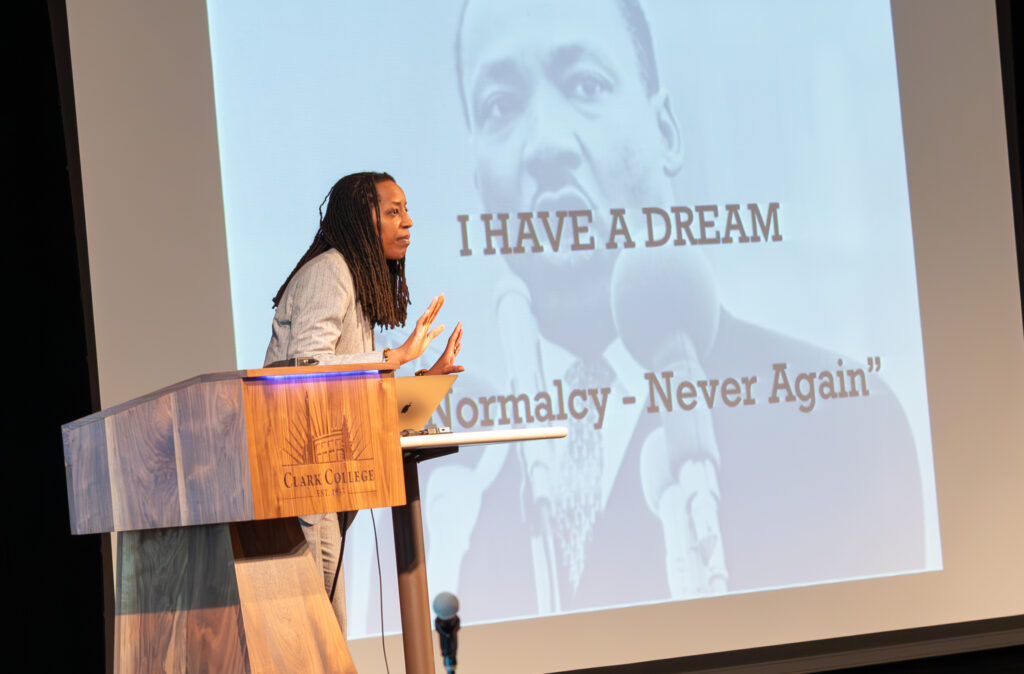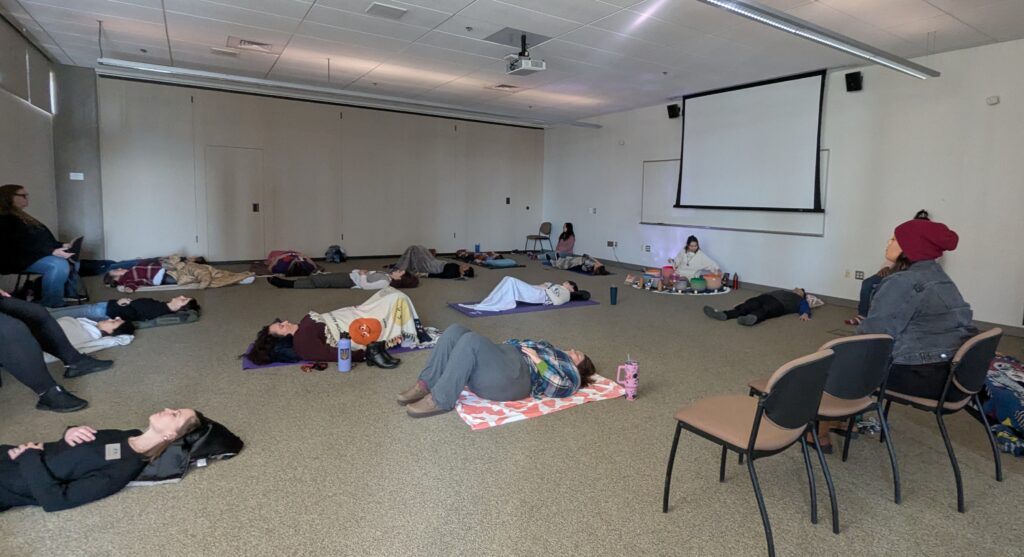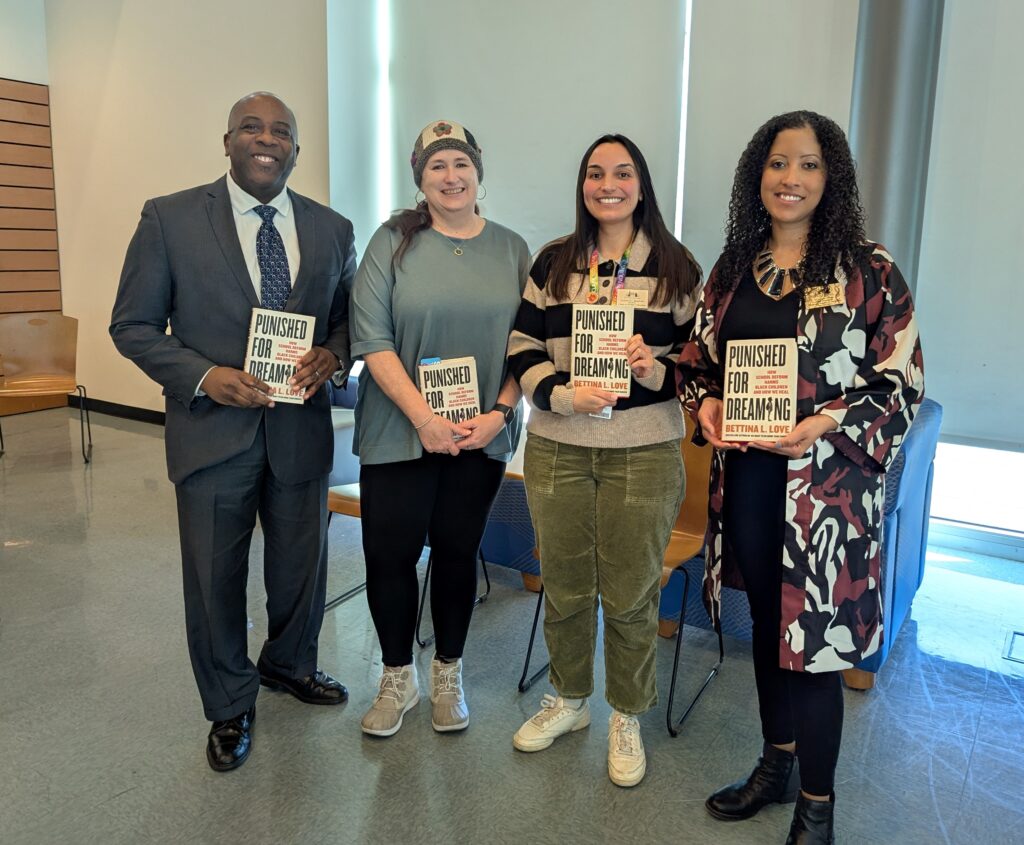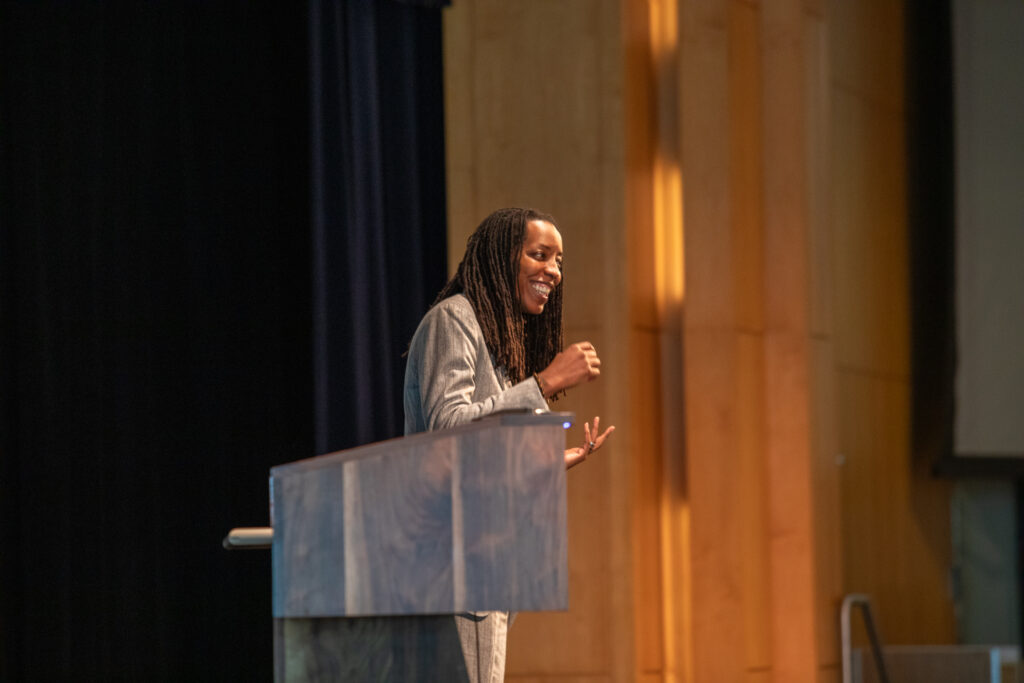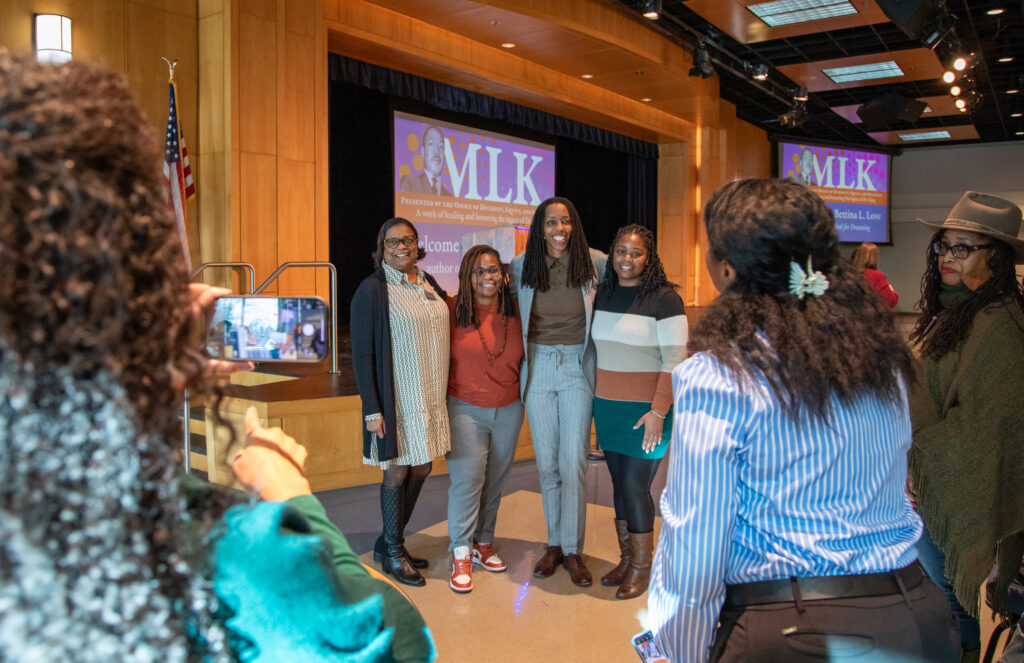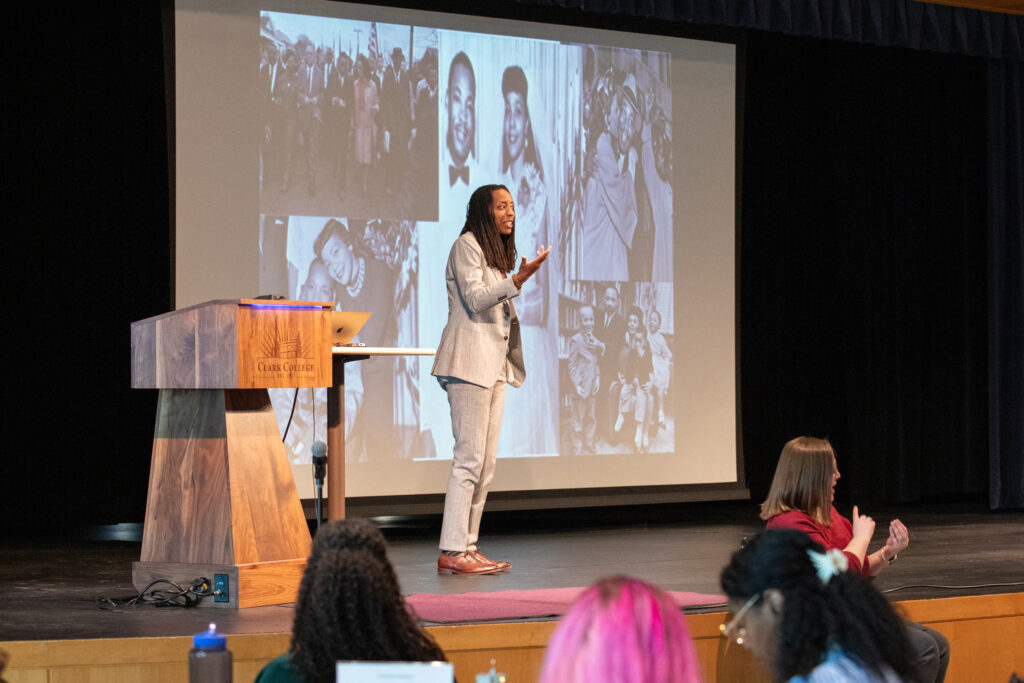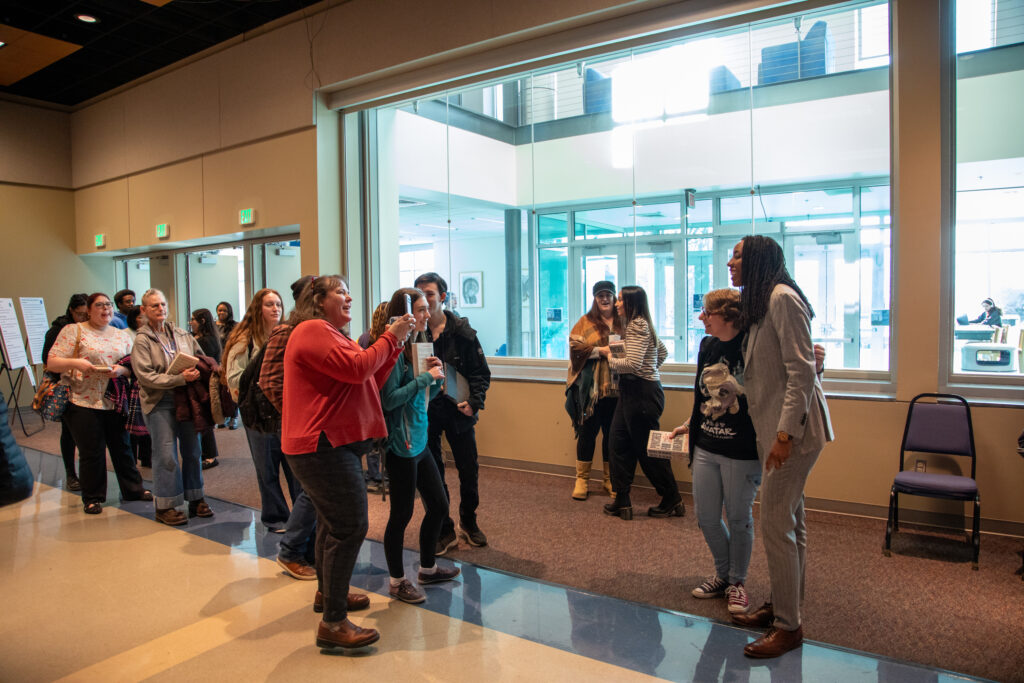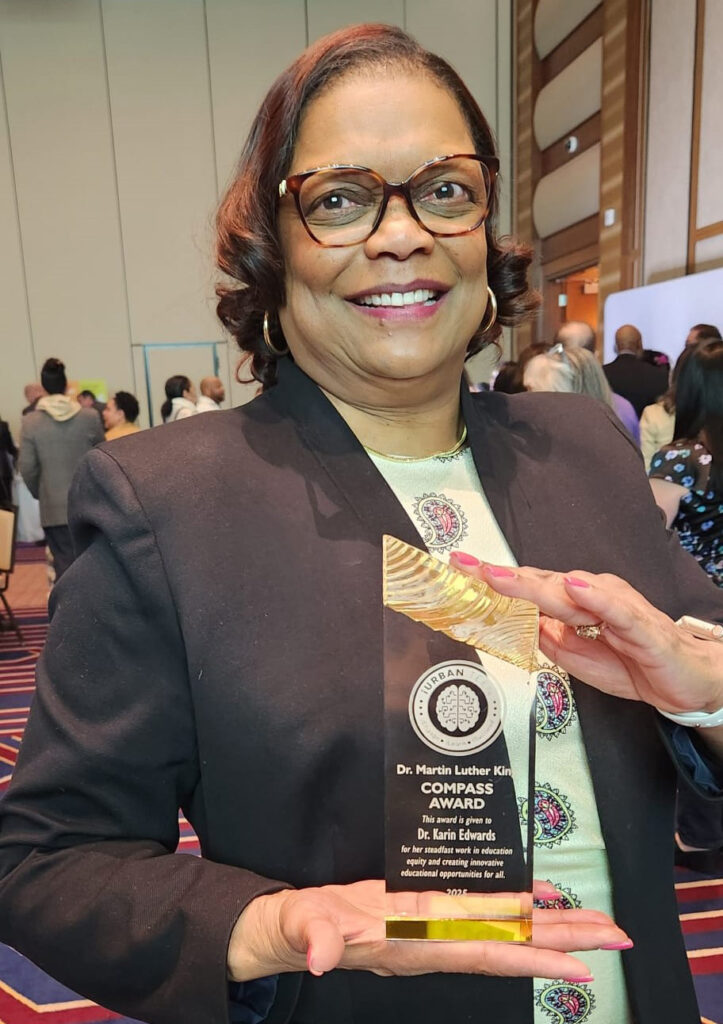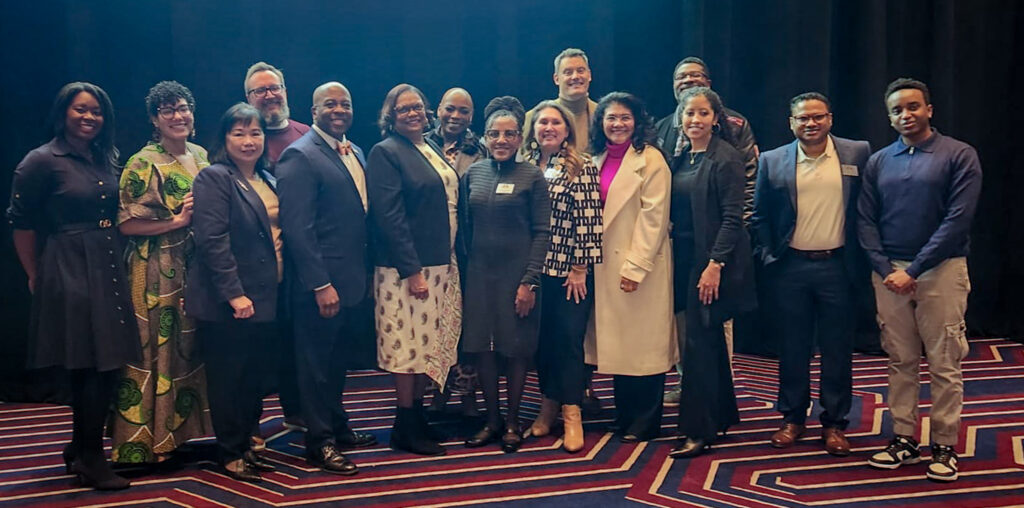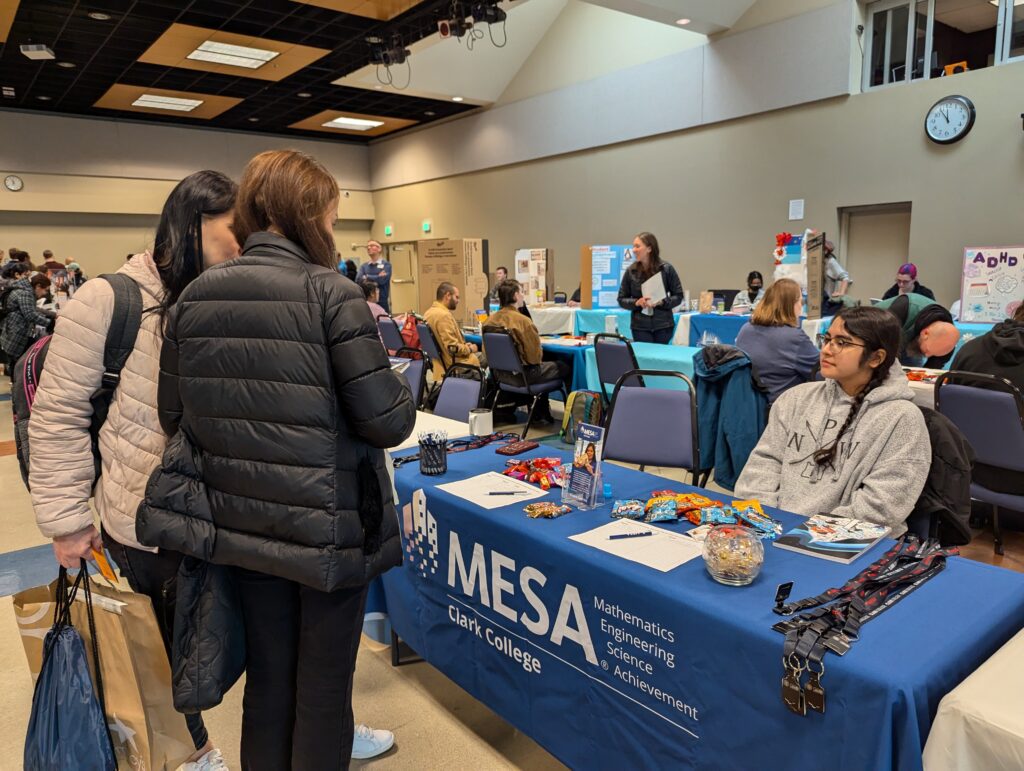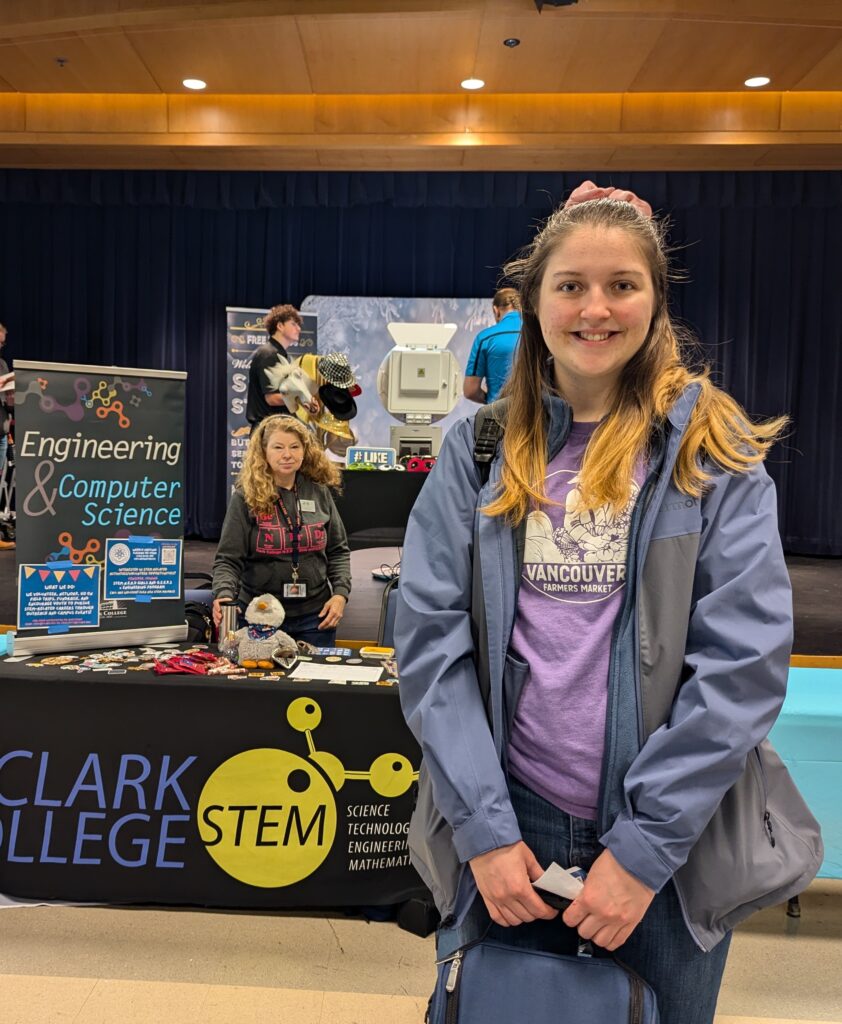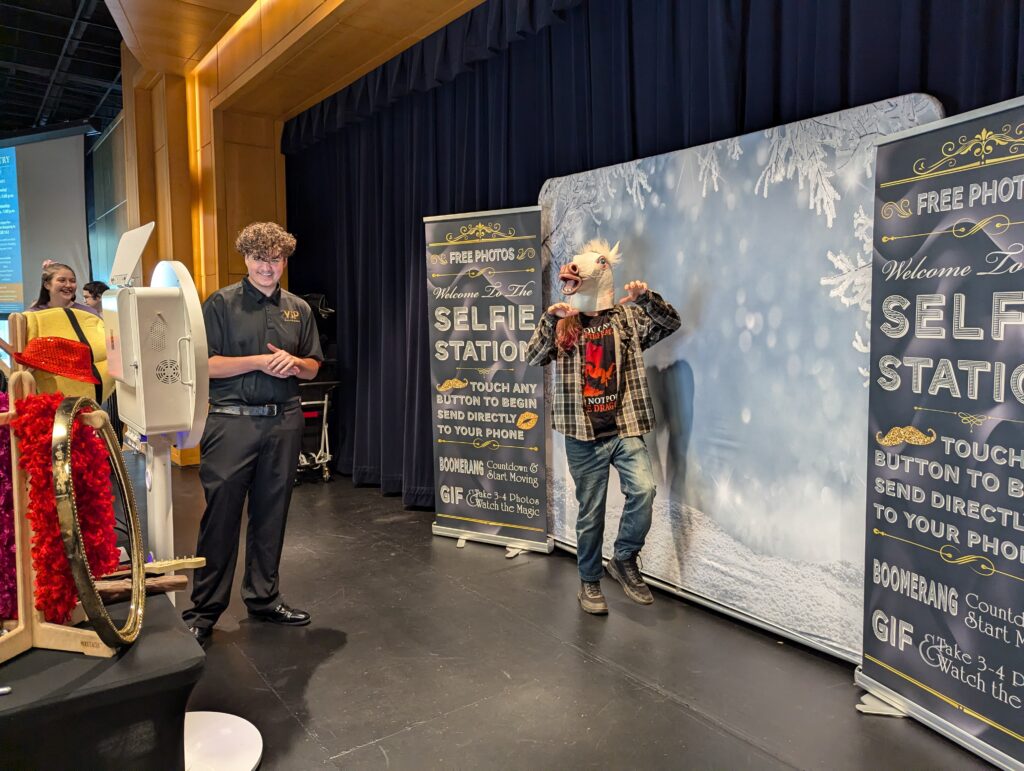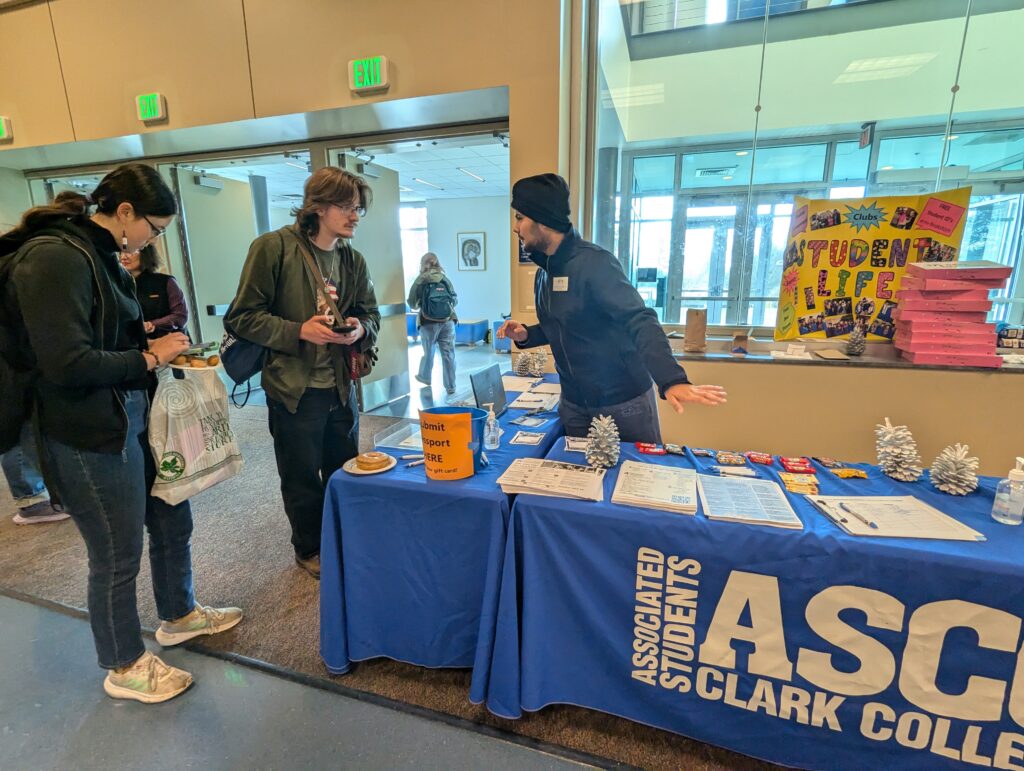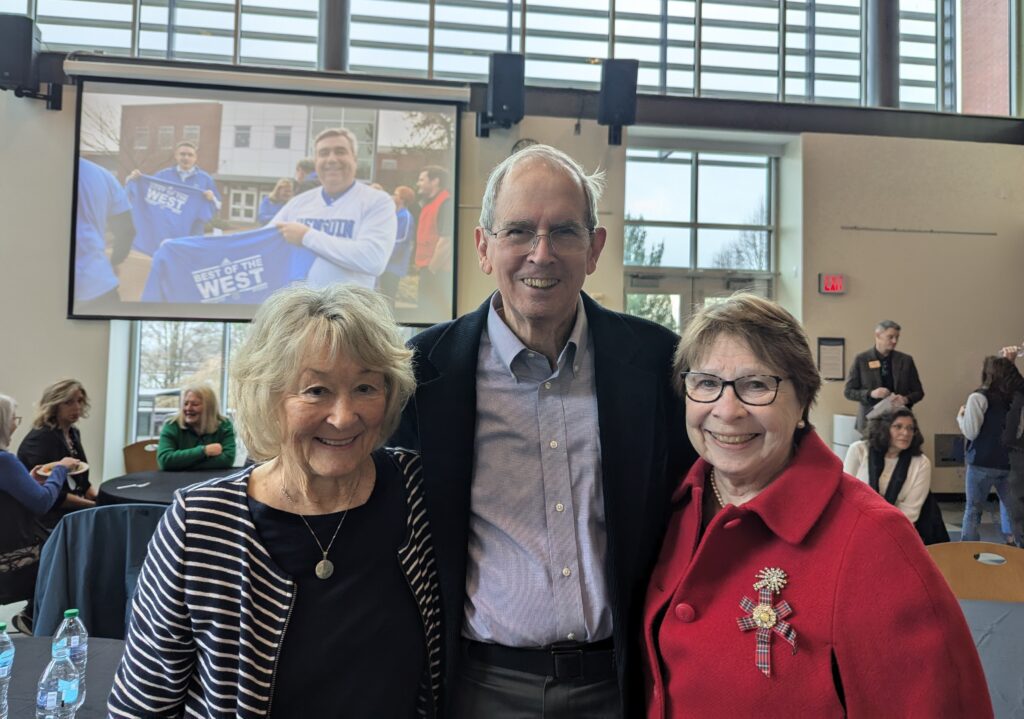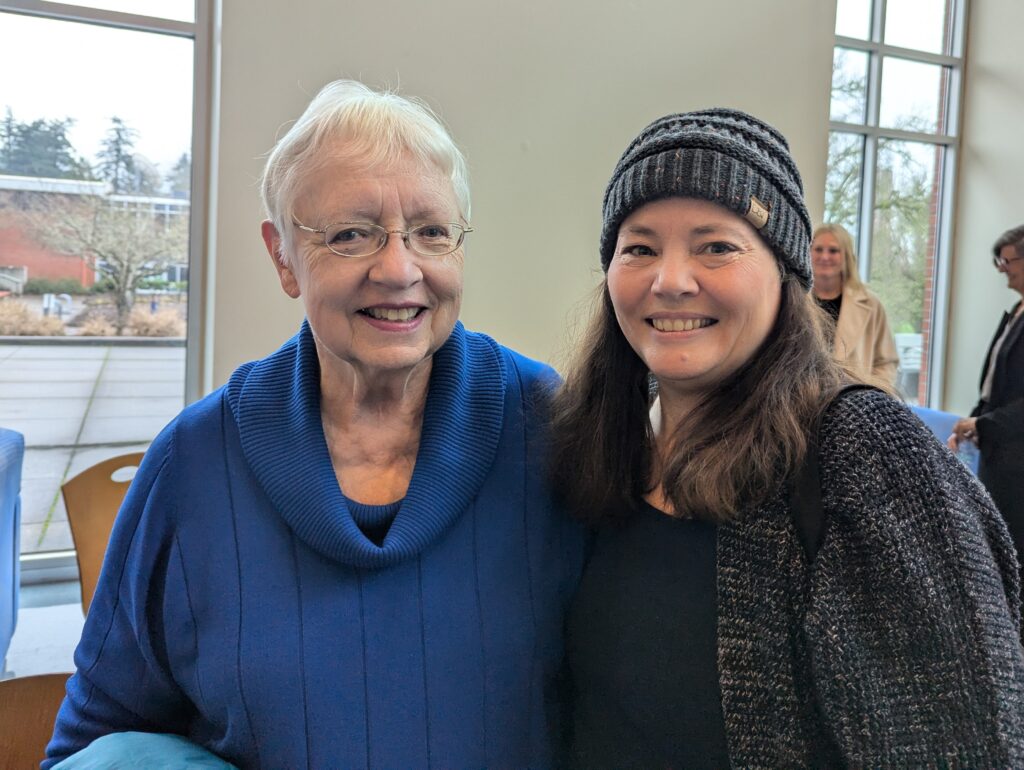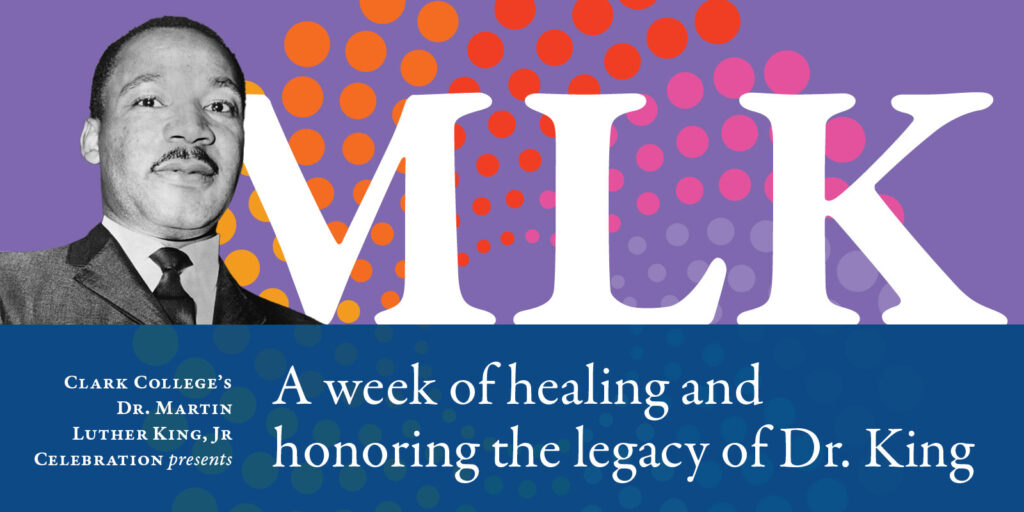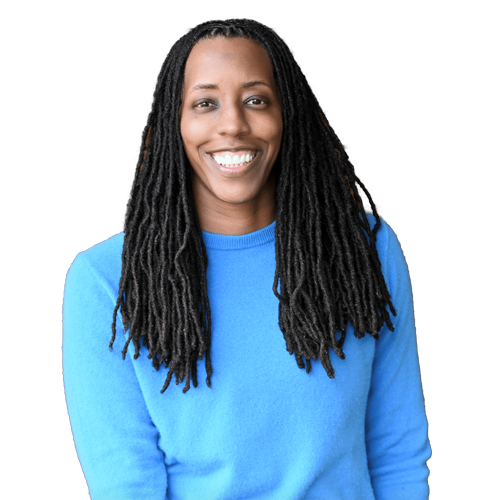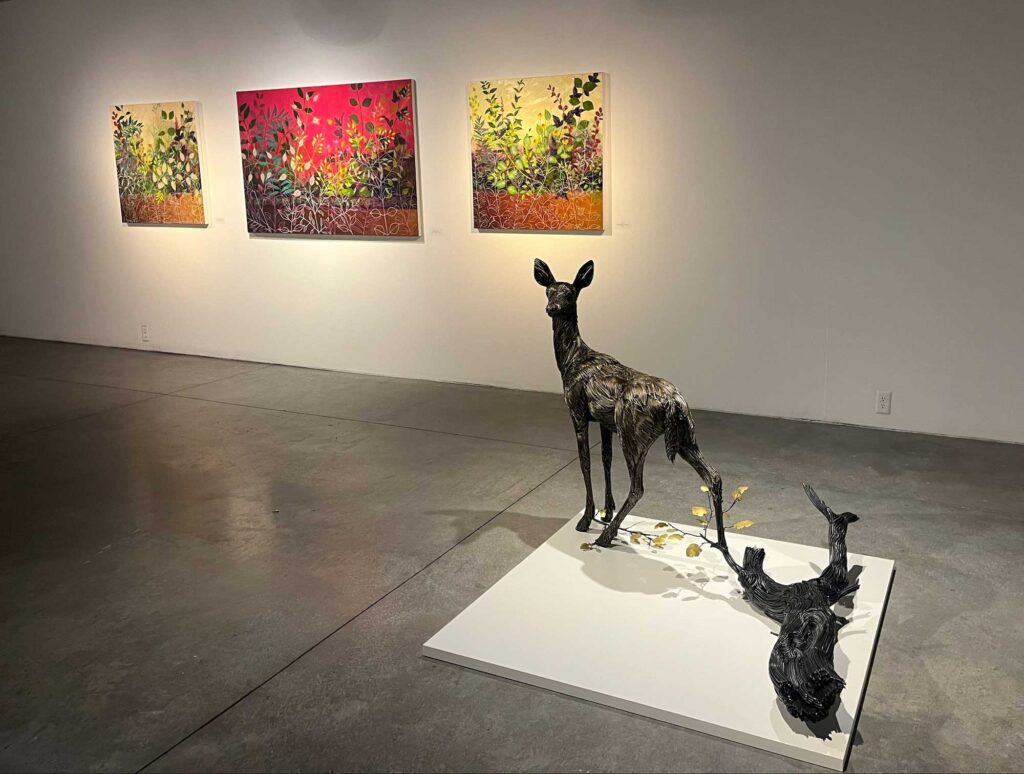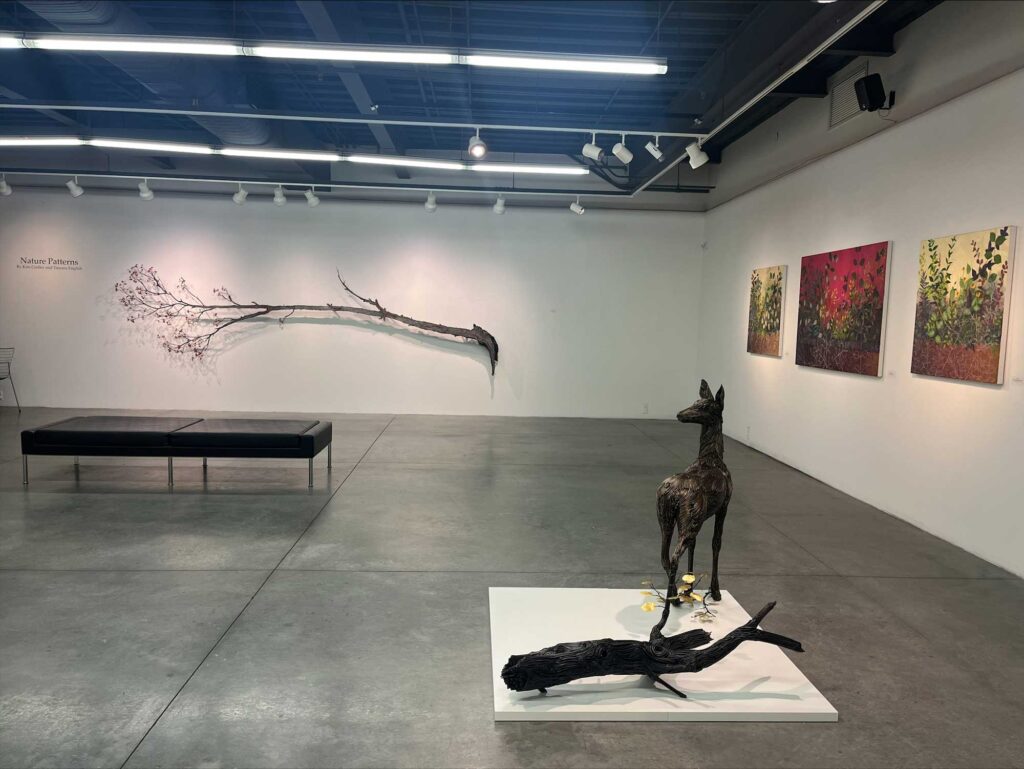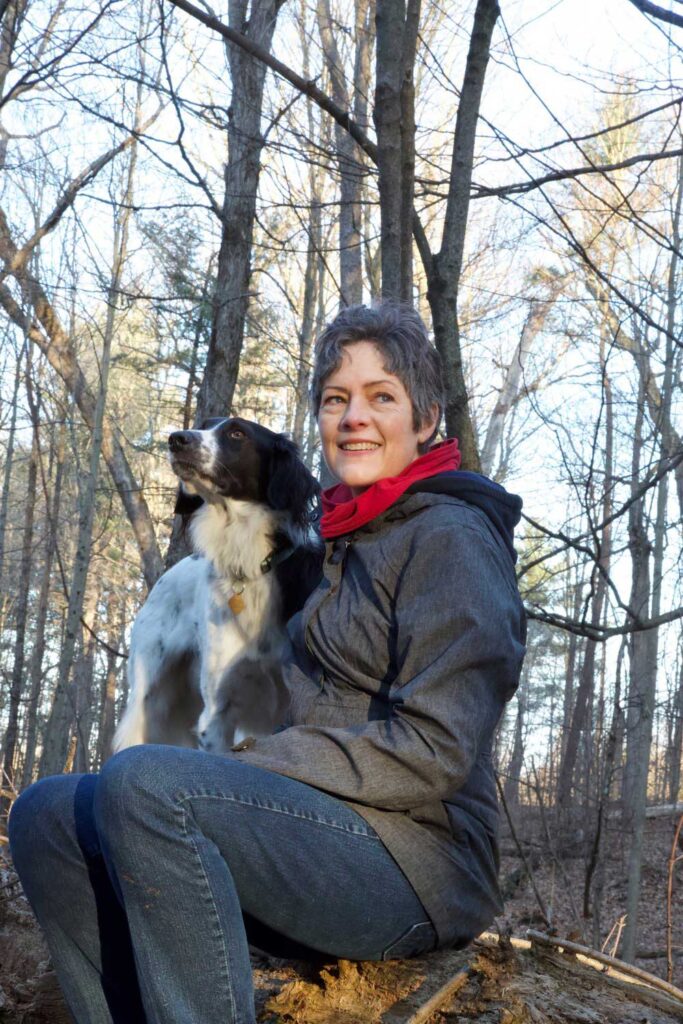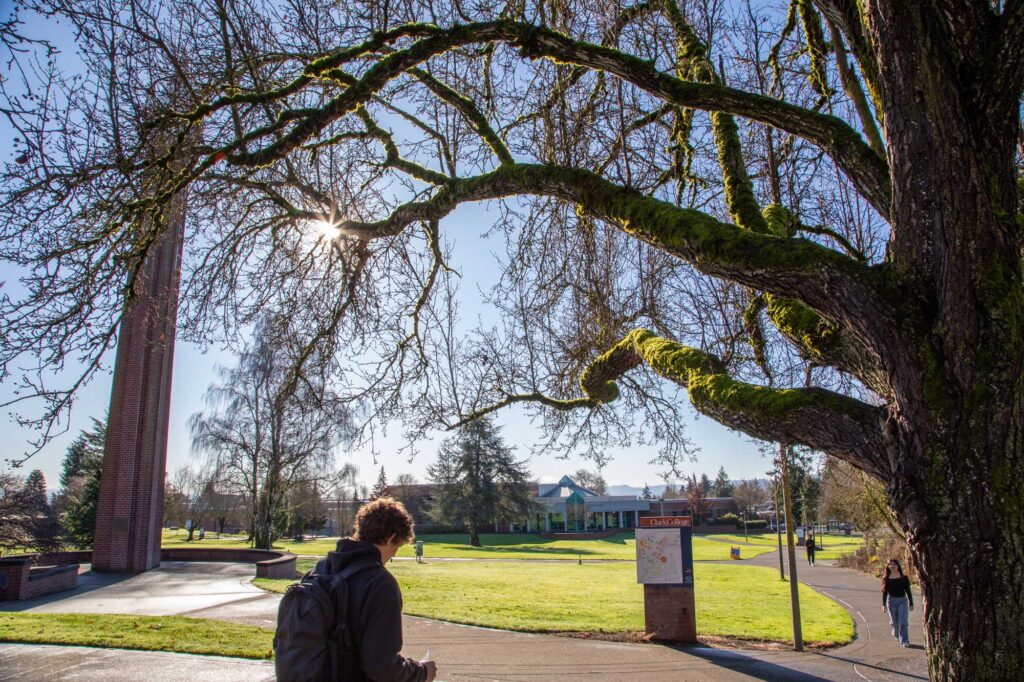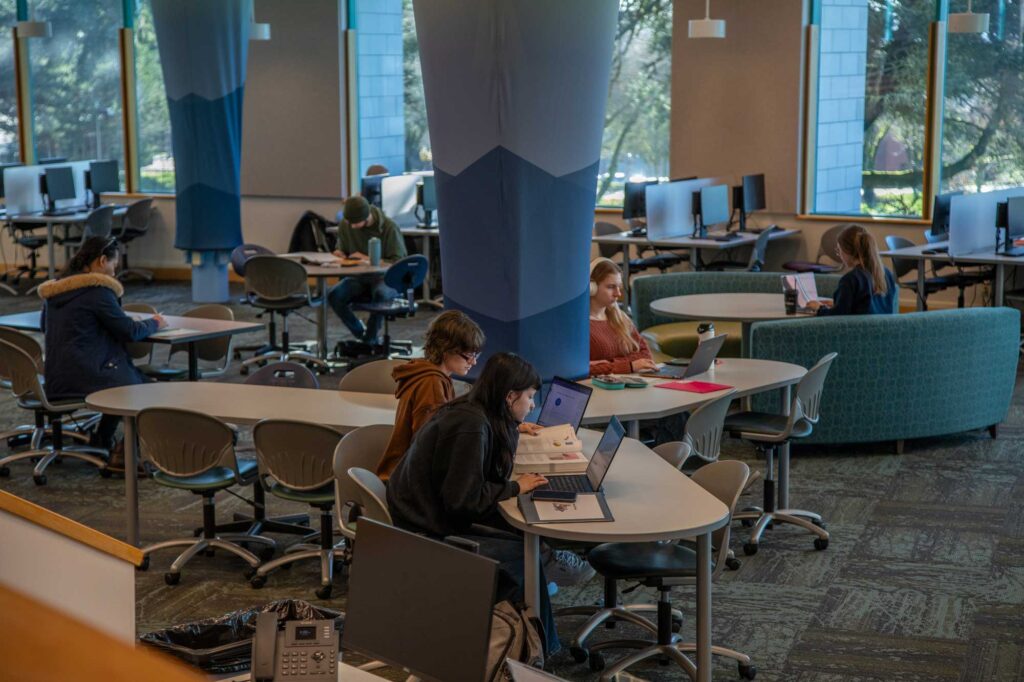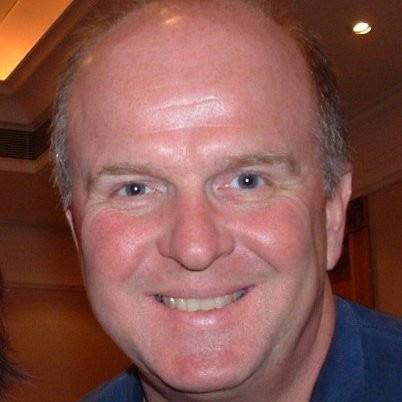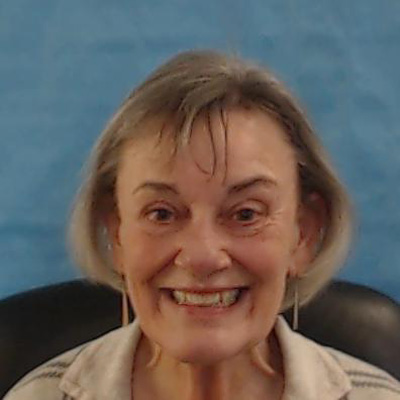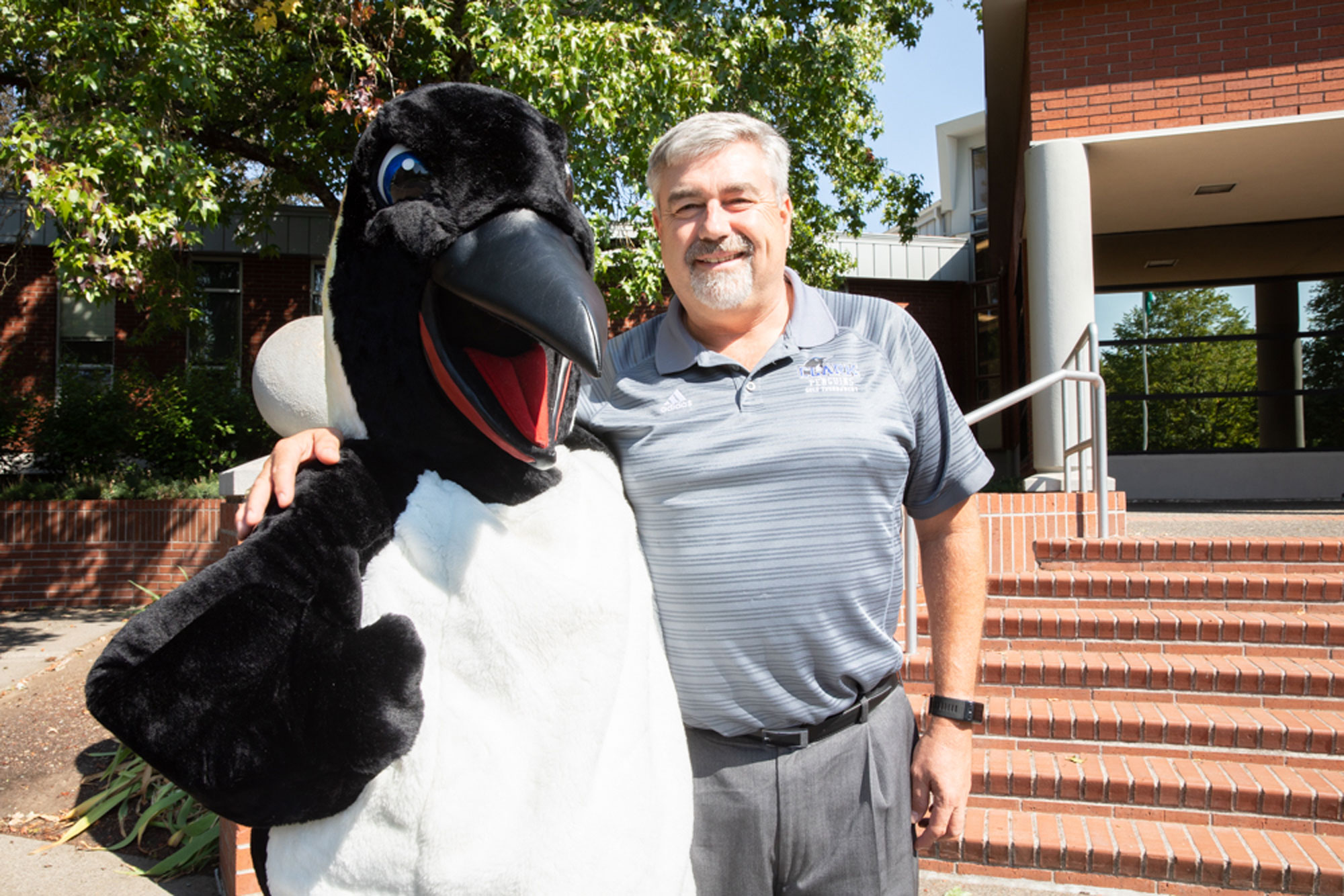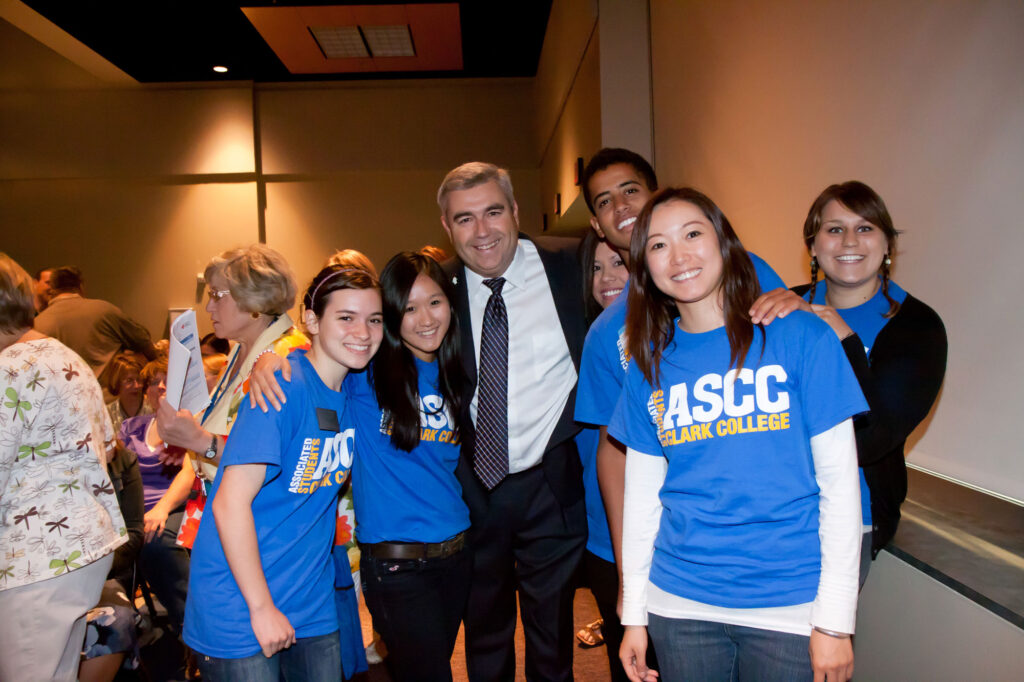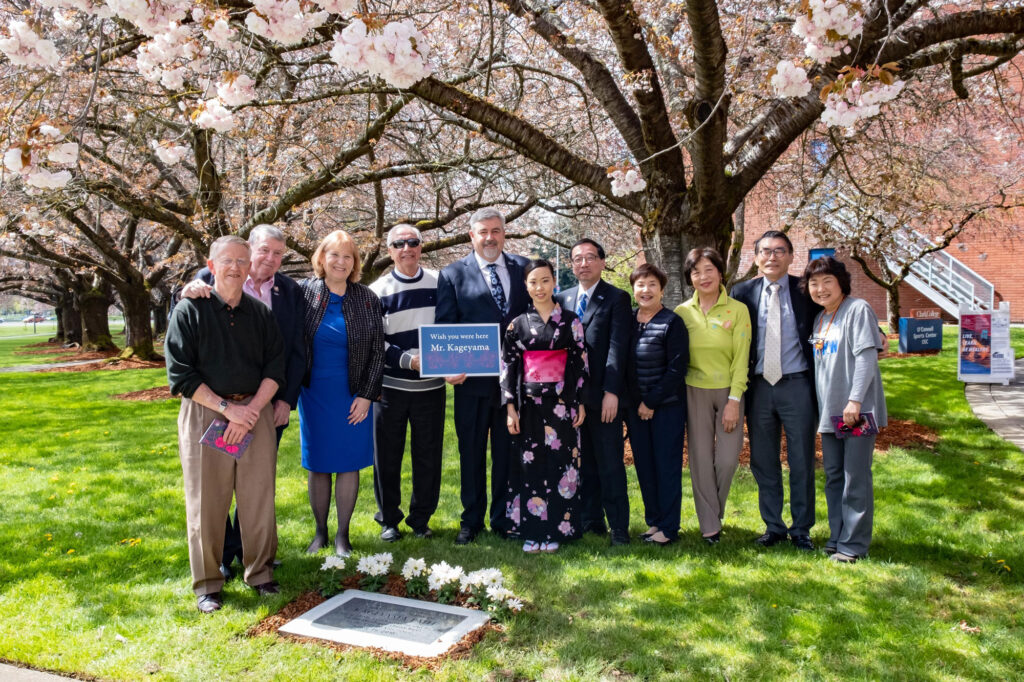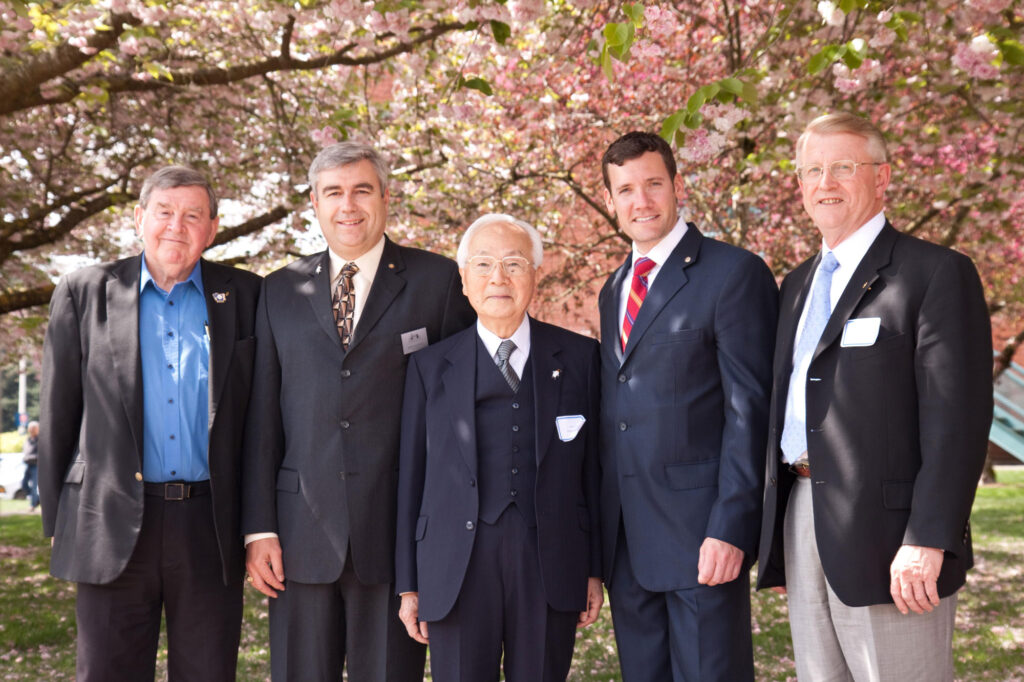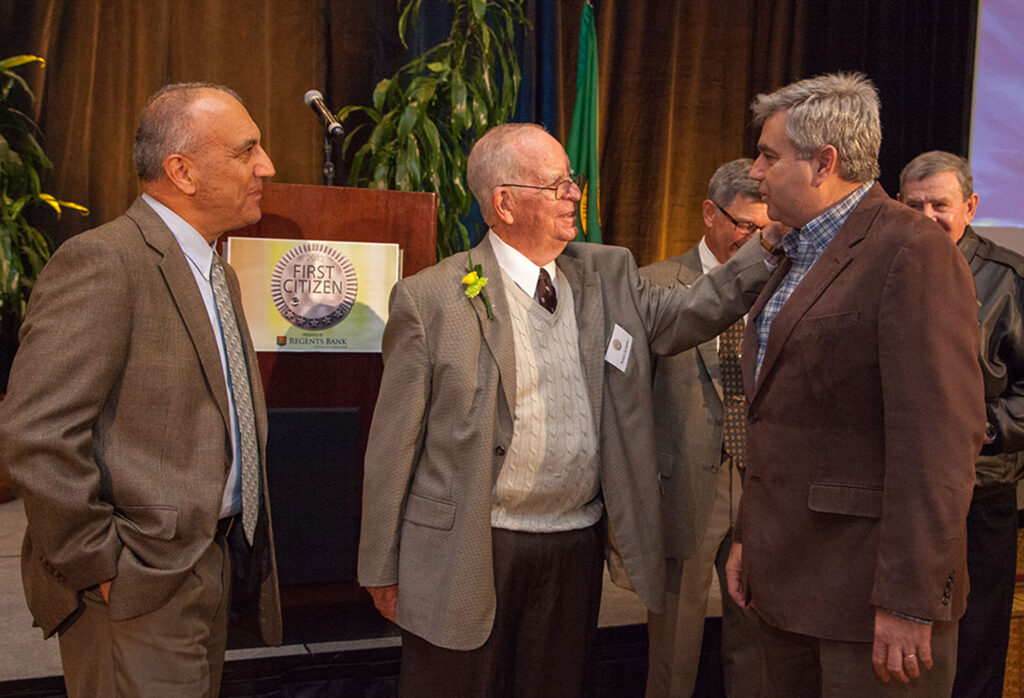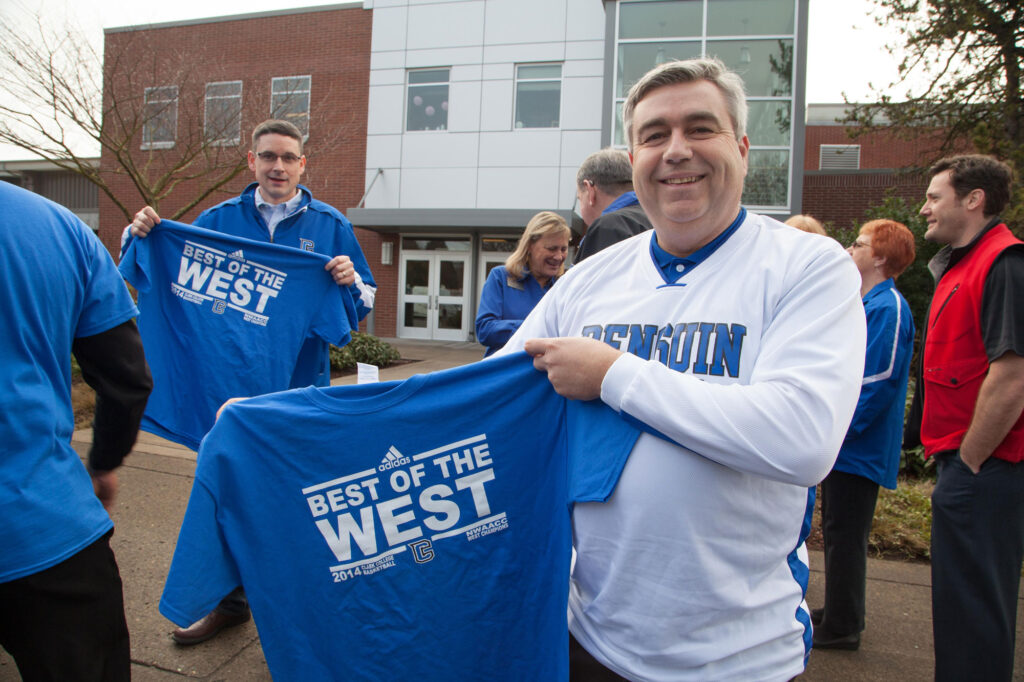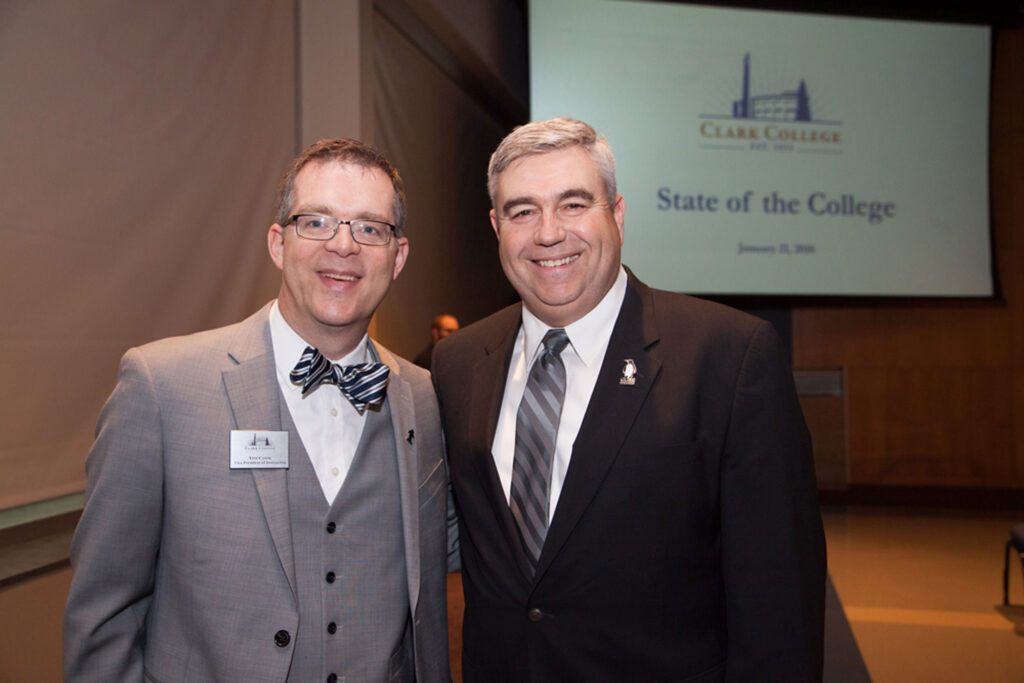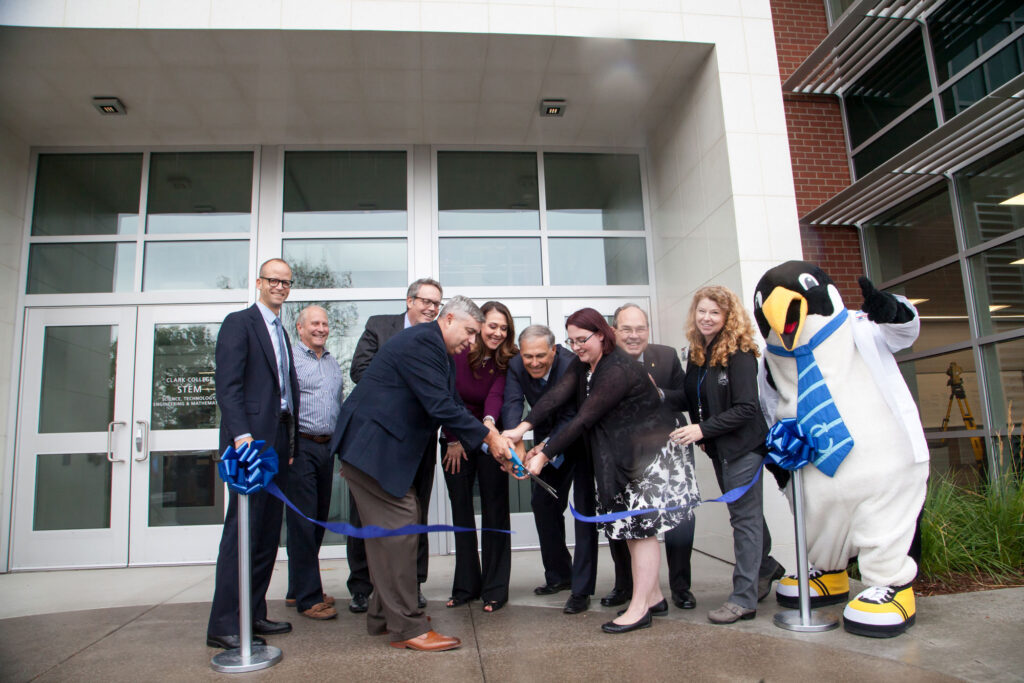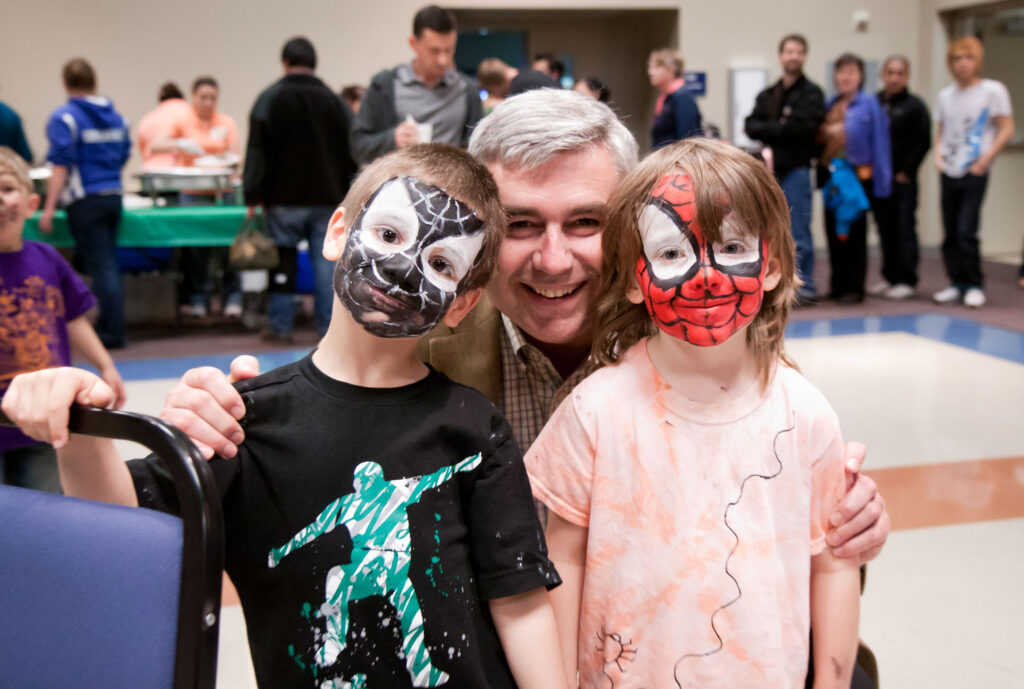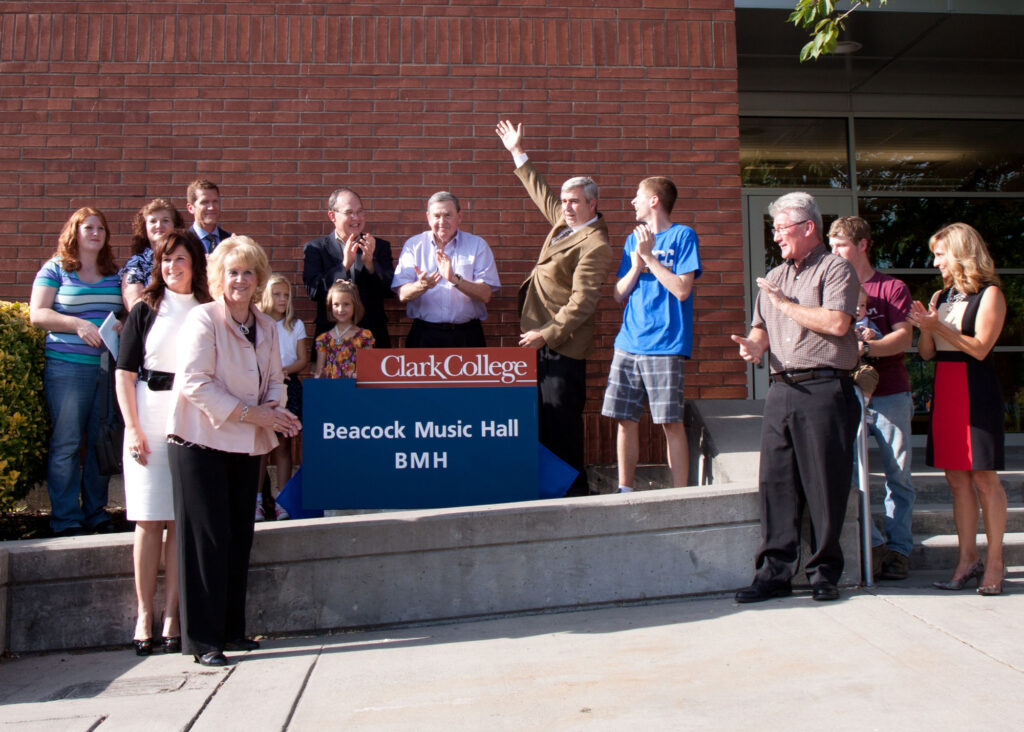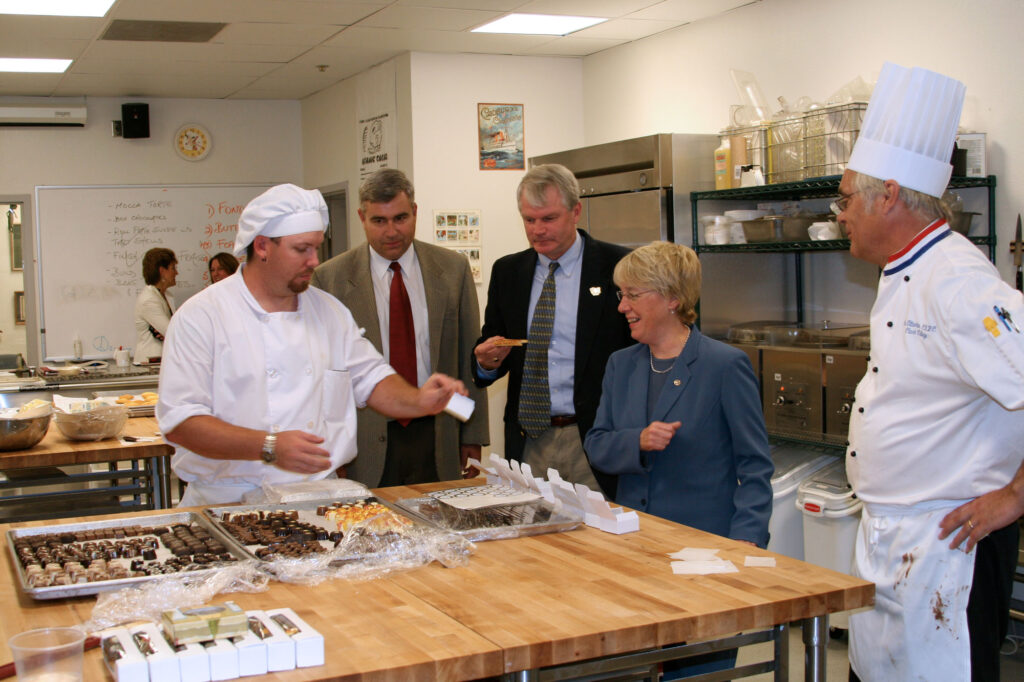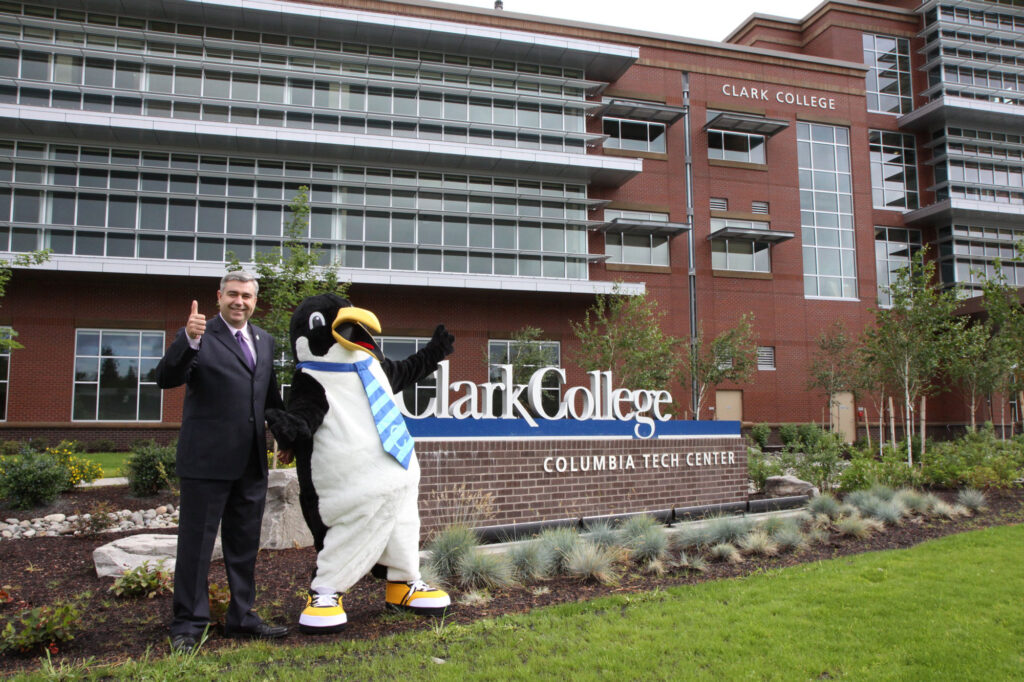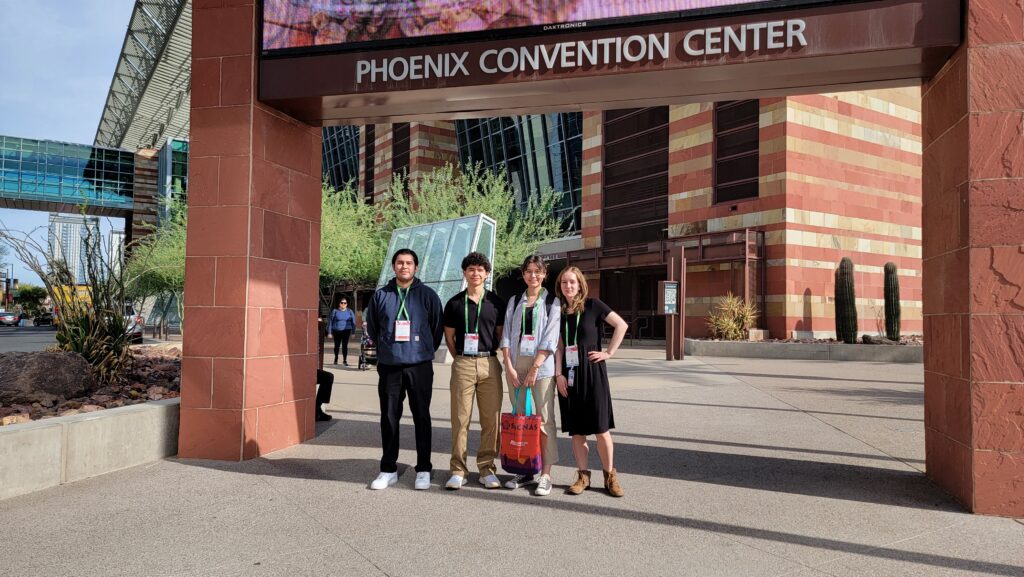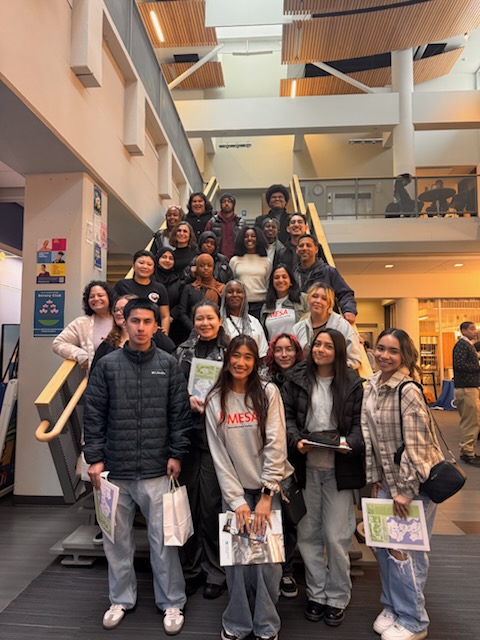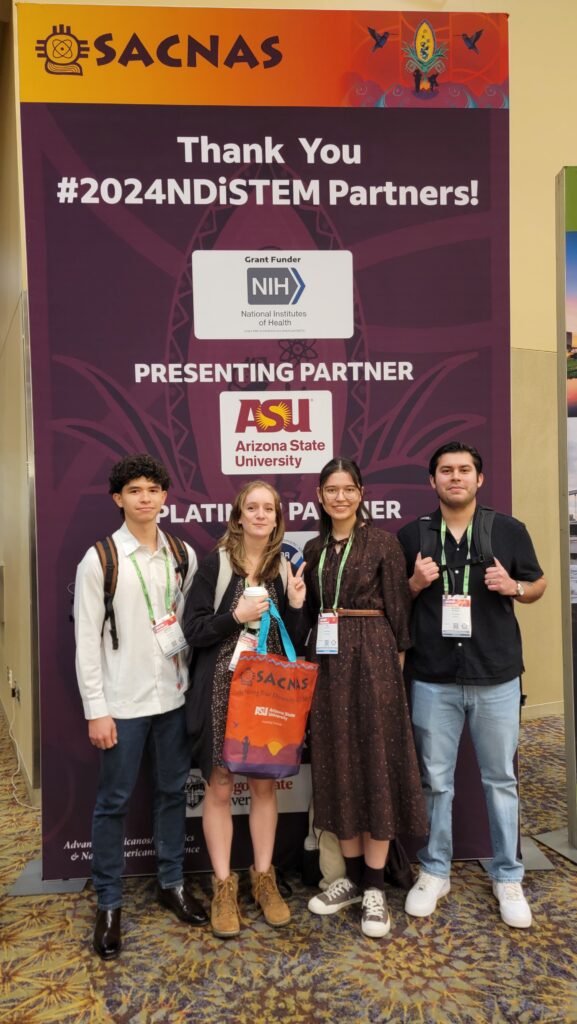Communications Studies hosts WSU transfer panel
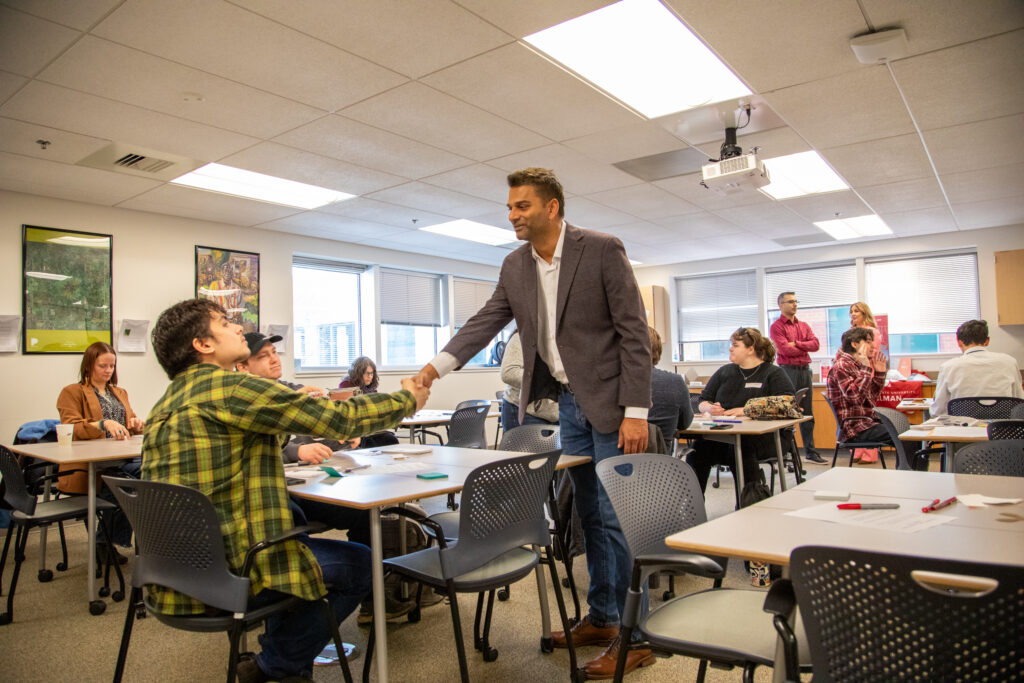
Clark College students considering a future in communication had a unique opportunity to connect with experts from Washington State University’s renowned Edward R. Murrow College of Communication. On January 23rd, the Clark College Communication Studies Department hosted a transfer panel and Q&A session in Gaiser Hall 205, giving students firsthand insights into bachelor’s degree pathways in the field.
Molly Lampros, communications studies professor, welcomed two special guests:
- Nanu Iyer, program director of the Murrow College of Communication at WSU Vancouver
- Imran Haider, director of online programs for the Murrow College of Communication at WSU
Lampros spoke about how Clark students who earn an associate of arts transfer degree can transfer to WSU, enroll in the Murrow College of Communication, and pursue a variety of degree options at the WSU campuses in Vancouver, Pullman, Everett, or the global (online) campus.
She told the students: “Ask questions to figure out how your career will continue in communication studies.”
Iyer started the program titled ‘Where Can Murrow Take You?’ by asking students to think broadly: “Where do we use strategic communications?”
A student replied, “I don’t know if this is where you’re going—but—everywhere?”
Iyer nodded. “Yes! Strategic communication is the brain behind every brand. Every field—including health care and government—needs people with communications skills.”
Haider agreed, “For me, having a communications degree has meant versatility. It allows you to open a hundred other doors that other majors don’t.”
He listed the variety of fields taught in WSU’s respected Murrow program: classes in journalism, advertising, public relations, and corporate communications. Then he added, “The classes are innovative. Exciting. What you’ll need in your career. These skills are flexible and versatile and have application in today’s communications world.”
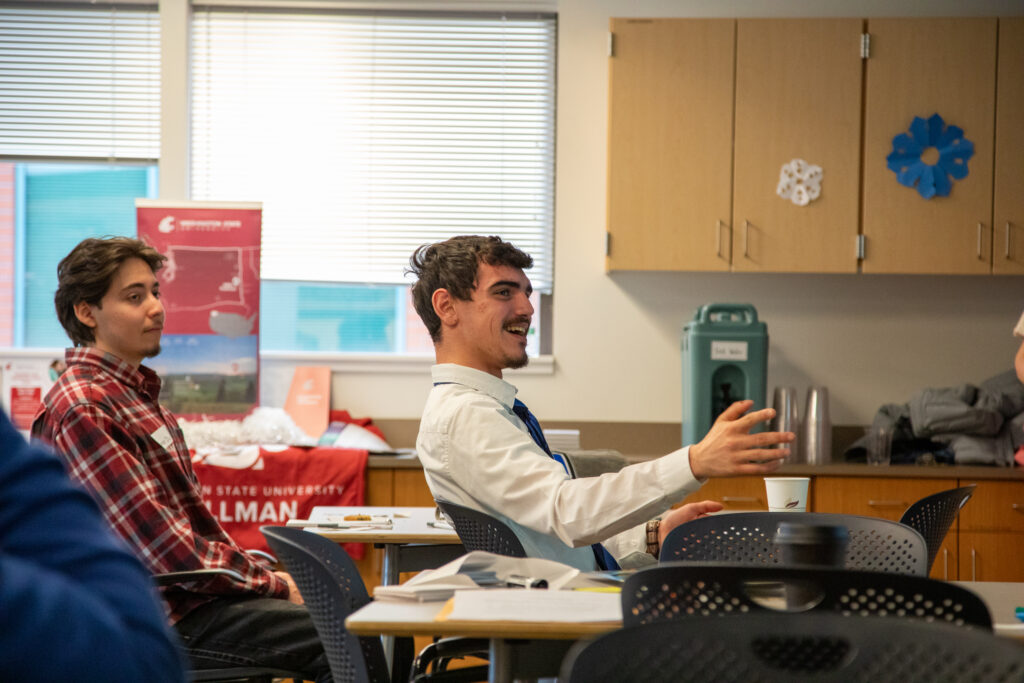
A robust discussion followed, with Clark students asking questions to learn about the career opportunities they could pursue in communications studies.
“I was very pleased with the level of student engagement and thoughtful questions asked,” said Lampros. “Students were excited and grateful to meet program directors from different campuses, and they seemed enthusiastic. Several students chose to dress up for the event, and many made professional connections on LinkedIn immediately following the panel.”
During fall term, she took her Mass Media students to Murrow College at WSU Vancouver for a thoughtful workshop about misinformation and propaganda. Lampros, Iyer, Haider, and WSU Vancouver faculty member, Elizabeth Candello, spoke about the benefits of Clark’s associate’s transfer degree and its alignment with Murrow College. Lampros invited Iyer and Haider to make a presentation on Clark’s campus, and they agreed.
The Communication Studies department hosted a Clark-to-Portland State University transfer panel in 2023, but this was the first Clark-to-Murrow transfer panel event. It likely will not be the last.
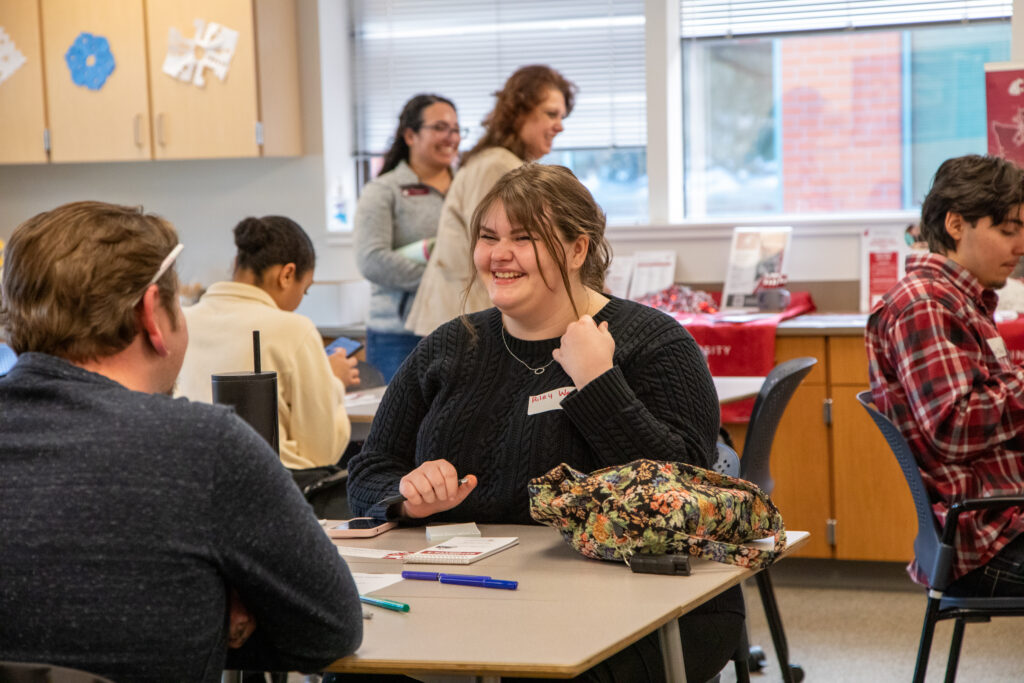
“I’m always looking for ways to support my students in their transfer efforts and help them make connections to the workforce, which will set them up for success,” said Lampros. “It can be rare to find opportunities to build community outside of the classroom and I am happy to help bridge that gap for our students.”
She added, “Many of my students indicated their intention to transfer to WSU and expressed gratitude for the panel. An event like this underscores the importance of our collaboration with WSU and shows students that a transfer degree is accessible and approachable. This event also demonstrates the vast and diverse career paths possible with a degree in Communication Studies.”
Preparing to transfer
Clark transfer advisors Laura Arellano-Karki and Tasaday Turner attended the presentation at the invitation of Lampros.
Turner, associate director of Advising and Student Success, said, “I really wanted to be there to support students and to provide information if needed.” She added, “It was great to hear how different people found themselves in a communication field and how that field is so very vast and broad.”
Turner reminded Clark students who plan to transfer to a four-year university: “Students should remember to apply early, get their financial aid forms completed, and submit their scholarship applications ASAP!”
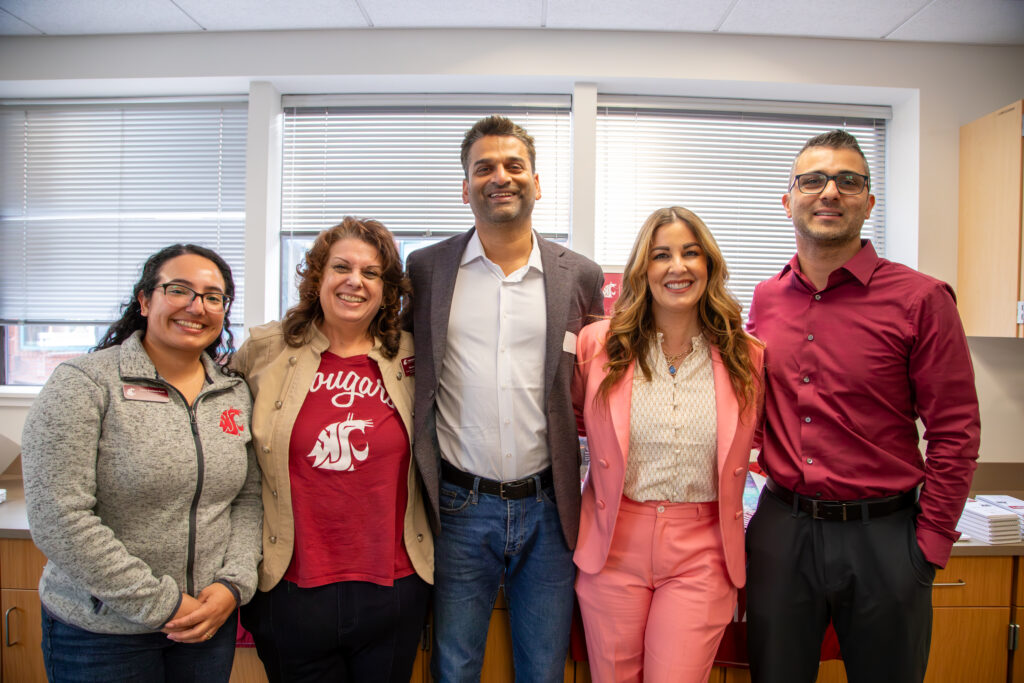
Murrow College of Communication at WSU
Murrow College majors in strategic communication are offered at the Vancouver, Pullman, Everett, and global campus and include:
- Advertising
- Integrated strategic communication
- Public relations
- Risk and crisis communication
Murrow College majors in journalism and media production are offered at the Pullman campus only and include:
- Broadcast news
- Broadcast production
- Media innovation
- Multimedia journalism
These Murrow College minors are offered at the Vancouver and Pullman campuses:
- Communication
- Sports communication
- Health communication and promotion
Learn more
- Learn about the WSU Edward R. Murrow College of Communication here.
- Learn about Murrow College majors and minors here.
- Learn about Edward R. Murrow’s legacy here.
Photos: Clark College/Jenny Shadley
